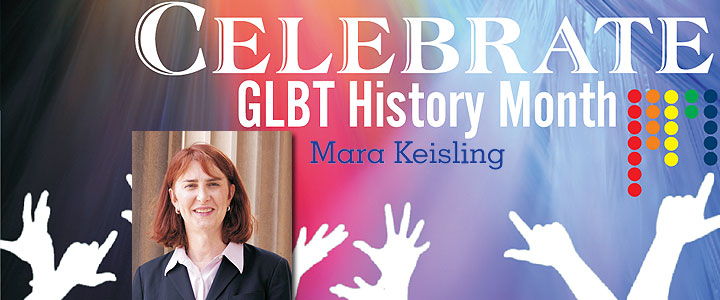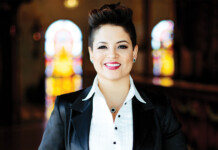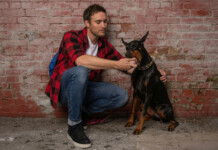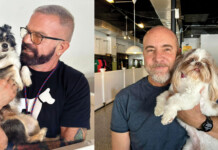 Mara Keisling wasn’t always the strong, outspoken person we see today. The transgender activist said that she was extremely shy growing up as a boy, Mark, in Harrisburg, PA. “During junior high, I was shy to the point where I feared giving a book report in front of the class,” she said.
Mara Keisling wasn’t always the strong, outspoken person we see today. The transgender activist said that she was extremely shy growing up as a boy, Mark, in Harrisburg, PA. “During junior high, I was shy to the point where I feared giving a book report in front of the class,” she said.

Mara Keisling
Born September 29, 1959
Mara Keisling wasn’t always the strong, outspoken person we see today. The transgender activist said that she was extremely shy growing up as a boy, Mark, in Harrisburg, PA.
“During junior high, I was shy to the point where I feared giving a book report in front of the class,” she said.
Keisling became more extroverted after joining the school’s Model U.N. Club, where she found hersel drawn to politics. She graduated from Penn State and pursued post-graduate work in American Government at Harvard University. In the 90’s, Keisling told friends and family that she’d felt like a woman since childhood and began her transition.
It was a natural next step for the politically-minded Keisling to turn to activism. She saw the discrimination transgender people face and wanted to do something about it. Keisling co-chaired the Pennsylvania Gender Rights Coalition and served on the steering committee of the Statewide Pennsylvania Rights Coalition.
In 2003, Mara Keisling founded the National Center for Transgender Equality (NCTE) in Washington. NCTE is a social justice organization dedicated to advancing equality through advocacy, collaboration and empowerment.
Keisling and NCTE were among the leaders of UnitedENDA, a coalition of more than 400 GLBT organizations lobbying for a Trans-inclusive Employment Non-Discrimination Act. In 2005, Harvard University named her Outstanding LGBT Person of the Year.
Keisling continues to serve as executive director at NCTE, which is now the largest transgender rights organization in the world.
“What’s important is that transgender people are respected as members of the community—that they are safe from discrimination and violence and disrespect,” she said.















